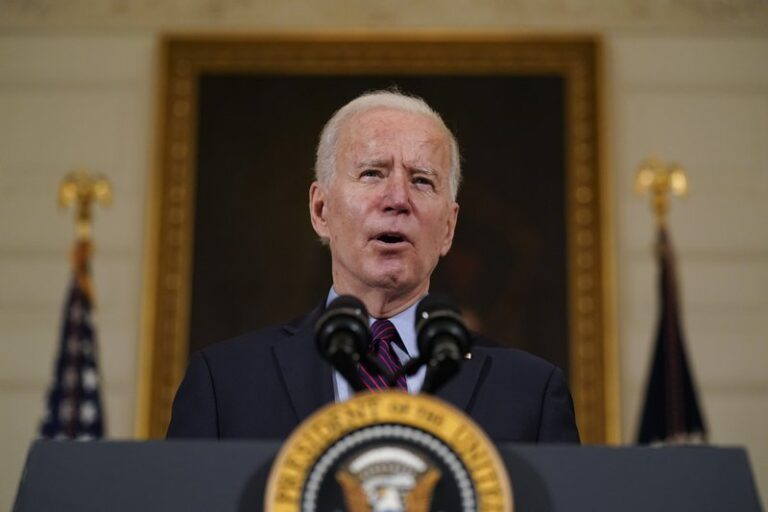
(AP) — President Joe Biden laid out his case Friday for moving fast to pass $1.9 trillion in coronavirus relief, but even as he opened the door to proceeding without Republicans, he conceded that a key element of his plan — hiking the minimum wage to $15 per hour — was unlikely to become law.
The stakes for the county and economy were amplified Friday morning by the release of the government’s jobs report for January, which showed that hiring had stalled to a pace that could hinder a return to full employment for several years. Some 406,000 people left the labor force last month as deaths from the pandemic have surged.
“A lot of folks are losing hope,” Biden said in a speech at the White House. “I believe the American people are looking right now to their government for help, to do our job, to not let them down. So I’m going to act. I’m going to act fast. I’d like to be doing it with the support of Republicans … they’re just not willing to go as far as I think we have to go.”
The jobs report landed shortly after Senate Democrats cast a decisive vote to muscle the COVID relief plan through the chamber without Republican support, a step toward final approval next month. Vice President Kamala Harris cast the tie-breaking vote in the Senate, her first.
Biden’s speech solidified a marked shift in tone and strategy for a president who entered the White House pledging bipartisanship and met on Monday with 10 Republican senators pushing a slimmed-down $618 billion alternative. Biden concluded in his Friday speech that aid at that level would only prolong the economic pain.
Still, the president acknowledged Friday that one of his most ambitious proposals, raising the minimum wage, would likely be left out of the final bill.
“I put it in, but I don’t think it’s going to survive,” Biden said in an interview with “CBS Evening News” anchor Norah O’Donnell, adding he would push to raise it in a standalone bill. “No one should work 40 hours a week and live below the poverty wage. And if you’re making less than $15 an hour, you’re living below the poverty wage.”
Senate Democrats applauded after Harris announced the chamber’s 51-50 vote on the budget measure at around 5:30 a.m. The action came after a grueling all-night session, where senators voted on amendments that could define the contours of the eventual COVID-19 aid bill.
Following Senate approval, the House passed the measure 219-209 on Friday afternoon, also without a Republican vote. The coronavirus aid package can now work its way through congressional committees with the goal of finalizing additional relief by mid-March, when extra unemployment assistance and other pandemic aid expires. It’s an aggressive timeline that will test the ability of the new administration and Congress to deliver.
“We have been focused like a laser on getting this done,” House Speaker Nancy Pelosi said after leading Democrats in the House met with Biden on Friday. “We hope to be able to put vaccines in people’s arms, money in people’s pockets, children safely in schools and workers in their jobs. That’s what we are doing now.”






